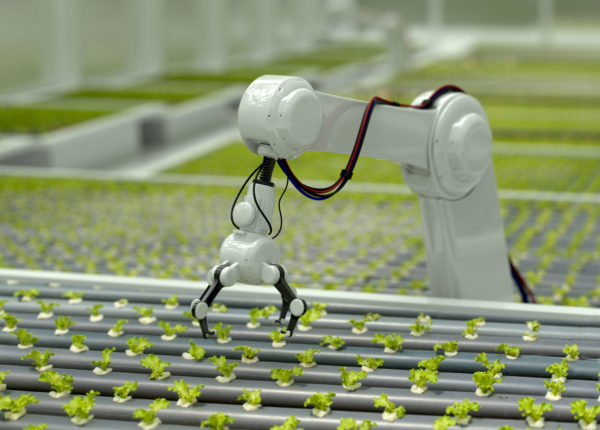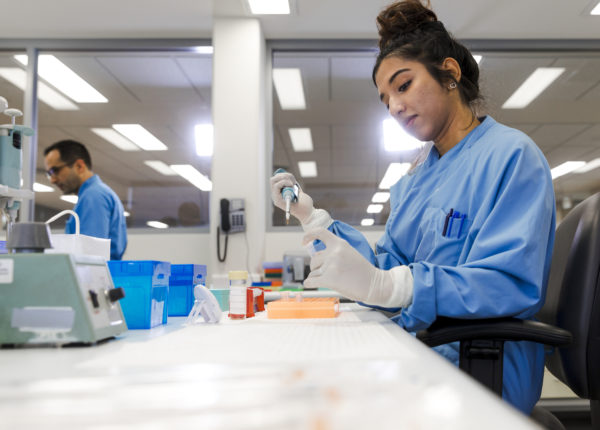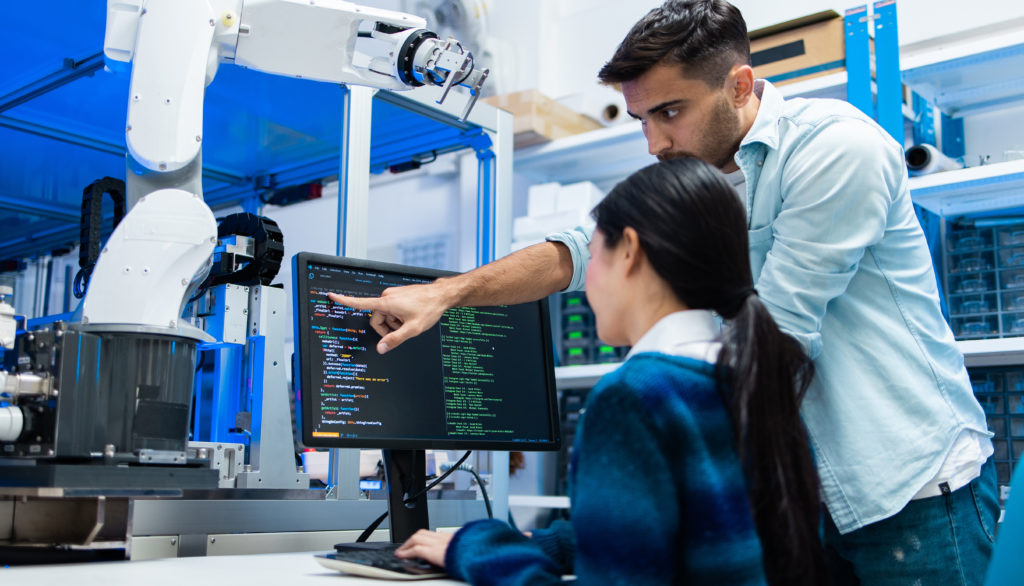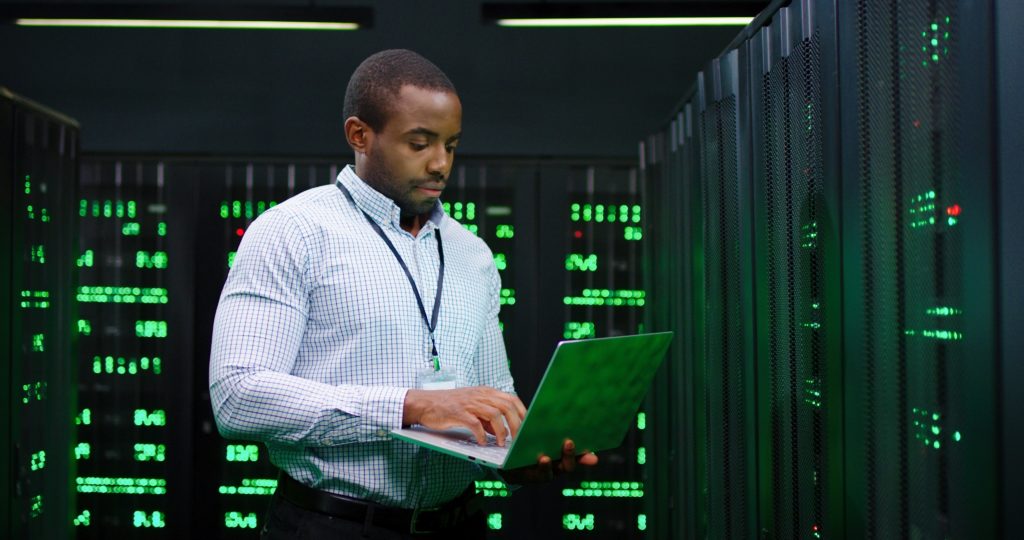Artificial intelligence can allow manufacturers to build prediction into their processes, fixing equipment before it breaks down, responding in real time to changes in customer demand, or managing risks of supply chain disruptions. AI can also be used to make products and machines work like we do—they can learn by example, solve problems, see and recognize objects, understand and respond to voices, teach themselves, and operate on their own – like self-driving cars. All this depends on the ability of computers to process enormous quantities of data, solve problems, and find patterns within them, in ways that would be impossible without them. Many of the tasks we assign it would be too repetitive or too big for humans to calculate. But A.I.’s also tackling the greatest challenges facing humanity today, from climate change and COVID-19, to world hunger, and are inevitably going to play an even larger role tomorrow.
Artificial Intelligence & Machine Learning

Did you know?
An A.I. robot built in the late 1990s called Kismet can recognize emotions through human body language and voice tone.
Outcomes & Solutions

Autonomous Vehicles
AI and machine learning is what powers self-driving cars and autonomous robots. It is essential for the safe and productive operation of autonomous equipment like these.

Feeding the World
Agriculture employs over a quarter of the world’s working population to feed us all. And yet this remains a challenge, but A.I. seems to be up to the task of figuring out the best balance that achieves the greatest amount of food, while eliminating waste and reducing pollution. In fact, A.I.-driven indoor farms have proven to produce 20 times more food per acre than traditional fields, while using 90% less water. A.I. is enabling producers to move farm to fork – from eliminating food waste and developing plant based nutritional food sources, to discovering new food sources, improving our circular economy.

Innovative Advancements in Health
Medicine is using deep learning for diagnosing life-threatening diseases like cancer. A.I. is also working on the world’s most urgent health issue—battling COVID-19. Here A.I is playing a critical role in accelerating the development of new vaccines, test kits, and other therapeutic treatments and igniting new possibilities in the field of bio-technology and bio-manufacturing.

Creating Jobs of the Future
Despite some unfounded sci-fi paranoia about artificial intelligence, people will still play a key role in monitoring and checking work, developing algorithms, programming machines, and managing and ensuring the AI enabled technologies are functioning properly. AI applications technology are exploding and forever changing business and science. It’s predicted that AI will create thousands of new jobs in Canada in only a few years' time.
Careers Using this Technology
Software Developer
A software developer applies principles and techniques of computer science, engineering, and mathematical analysis. As a software developer, you’d lend your talent to helping solve problems that help the world move more quickly and efficiently. Developing new algorithms and AI applications, software developers can help solve problems for manufacturers and their customers in fields like medical, industrial, military, communications, aerospace, business, scientific, and general computing, and even future proof against problems we haven’t encountered yet. There’s almost no end to job possibilities in advanced manufacturing for ambitious young coders, software developers, and AI engineers.

Machine Learning Engineer
Machine learning engineers sit at the intersection of software engineering and data science. Machine learning engineers build programs that control computers and robots. The algorithms developed by machine learning engineers enable a machine to identify patterns in its own programming data and teach itself to understand commands and even think for itself. This is tremendously beneficial for manufacturing lines, as machines can learn to adapt to changing products on the line, for example switching from one car model to another, which saves time and allows for more product to be made, more efficiently. And it is what builds the autonomy into self-driving cars and robots.

Data Scientist (Deep Learning)
This job involves quantifying data in order to make production run more efficiently. In order to make the most of production processes, manufacturing companies must analyze internal equipment and factories as well as external market factors and logistics. These trained professionals combine expertise in traditional management with knowledge of the latest innovations in big data.


